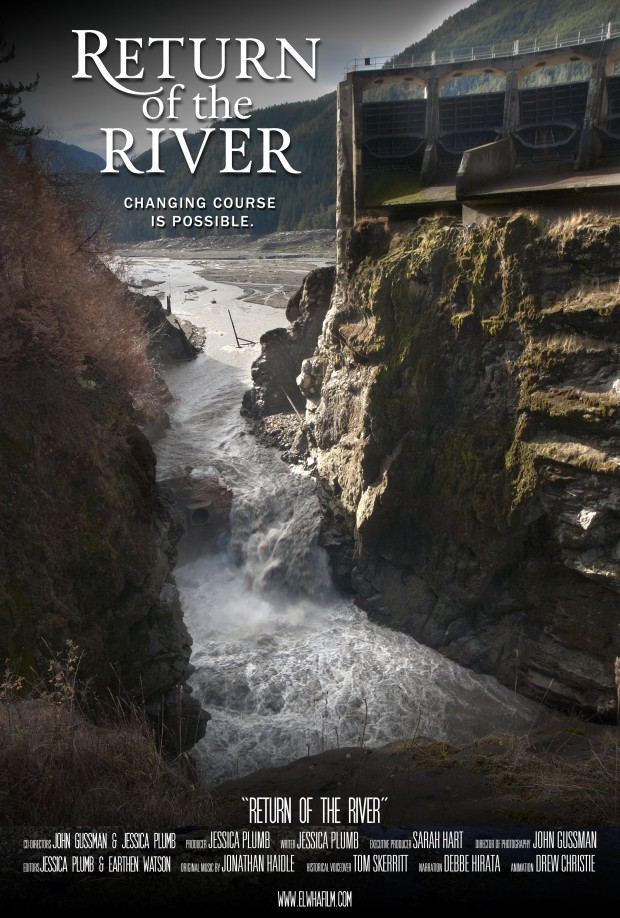‘Return of the River’ Doc at the Museum Feb. 17
 When Frances Charles, chairwoman of the Lower Elwha Klallam Tribe, proposed a plan to remove the Elwha River Dam, everyone told her she was crazy. Four years later, Frances’s “crazy idea” has become one of the most celebrated environmental success stories ever.
When Frances Charles, chairwoman of the Lower Elwha Klallam Tribe, proposed a plan to remove the Elwha River Dam, everyone told her she was crazy. Four years later, Frances’s “crazy idea” has become one of the most celebrated environmental success stories ever.
Return of the River, a 70-minute film chronicling the four-year process of removing the 100-year-old structure from Washington State’s Olympic Peninsula screens at 7 p.m. Tuesday, Feb. 17 at the Wenatchee Valley Museum & Cultural Center, 127 S. Mission St. The film, sponsored by Washington Water Project of Trout Unlimited, is a narrative with global ramifications, exploring the complex relationship between communities and the environment that sustains them.
When the first dam was built on the Elwha River in 1910, it broke existing environmental laws requiring fish passage. The dam decimated a legendary salmon run and inundated sacred tribal land. Charles rallied a strong-minded group of people and set out to attempt the impossible: change the public opinion of a town and then a nation to bring the dam down.
“Here, in the success of our collective action on the Elwha, is a template for success on climate change, energy policy, ocean conservation and hundreds of other issues,” Said former U.S. Senator Bill Bradley. “It will be the great gift of the Elwha: Hope.”
The series is presented by Wenatchee Valley Museum & Cultural Center, Trust for Public Land and the Chelan Douglas Land Trust. Screenings are free but a $5 donation is suggested.
“Trout Unlimited’s Washington Water Project (TU) has been a regional leader in fisheries and water resources restoration for over a decade,” said Phaedra Booth, who works in the Wenatchee office. “TU is a non-profit organization working to restore salmon and trout populations in Washington State. TU works in the Columbia River watershed from the Yakima River basin north to the Canadian border. Its work puts water back in rivers, restores habitat and brings our Pacific Northwest fish home.”
For more information call 888-6240 or visit www.wvmcc.org.



